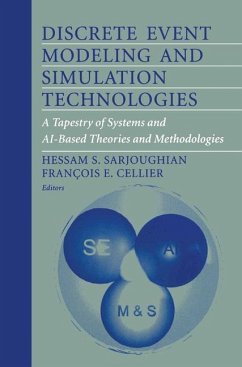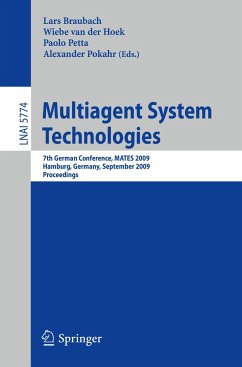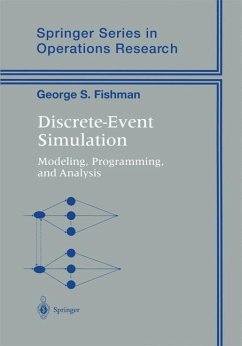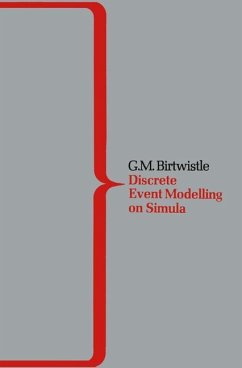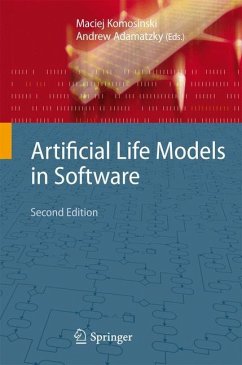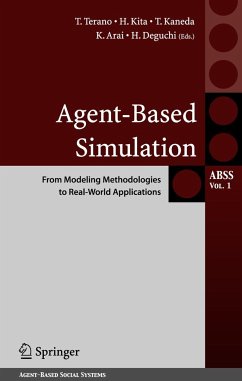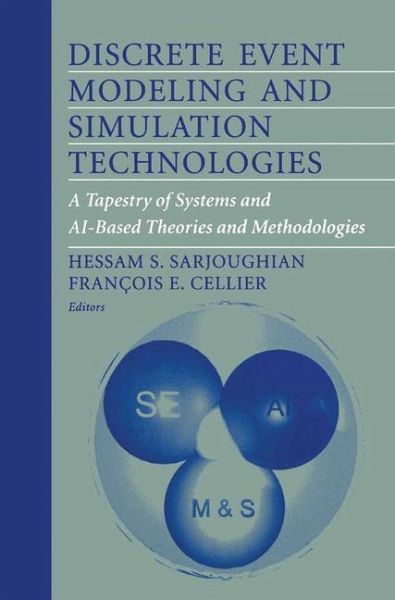
Discrete Event Modeling and Simulation Technologies
A Tapestry of Systems and AI-Based Theories and Methodologies
Herausgegeben: Sarjoughian, Hessam S.; Cellier, François E.
Versandkostenfrei!
Versandfertig in 6-10 Tagen
38,99 €
inkl. MwSt.

PAYBACK Punkte
19 °P sammeln!
During the 1990s the computing industry has witnessed many advances in mobile and enterprise computing. Many of these advances have been made possible by developments in the areas such as modeling, simulation, and artificial intelligence. Within the different areas of enterprise computing - such as manufacturing, health organisation, and commerce - the need for a disciplined, multifaceted, and unified approach to modeling and simulation has become essential. This new book provides a forum for scientists, academics, and professionals to present their latest research findings from the various fields: artificial intelligence, collaborative/distributed computing, modeling, and simulation.
The initial ideas behind this edited volume started in spring of 1998 - some two years before the sixtieth birthday of Bernard P. Zeigler. The idea was to bring together distinguished researchers, colleagues, and former students of Professor Zeigler to present their latest findings at the AIS' 2000 conference. During the spring of 1999, the initial ideas evolved into creating a volume of articles surrounding seminal concepts pertaining to modeling and simulation as proposed, developed, and advocated by Professor Zeigler throughout his scientific career. Also included would be articles describing progress covering related aspects of software engineering and artificial intelligence. As this volume is emphasizing concepts and ideas spawned by the work of Bernard P. Zeigler, it is most appropriate to offer a biographical sketch of his scientific life, thus putting into a historical perspective the contributions presented in this volume as well as new research directions that may lie ahead! Bernard P. Zeigler was born March 5, 1940, in Montreal, Quebec, Canada, where he obtained his bachelor's degree in engineering physics in 1962 from McGill University. Two years later, having completed his MS degree in electrical engineering at the Massachusetts Institute of Technology, he spent a year at the National Research Council in Ottawa. Returning to academia, he became a Ph. D. student in computer and communication sciences at the University of Michigan, Ann Arbor.



